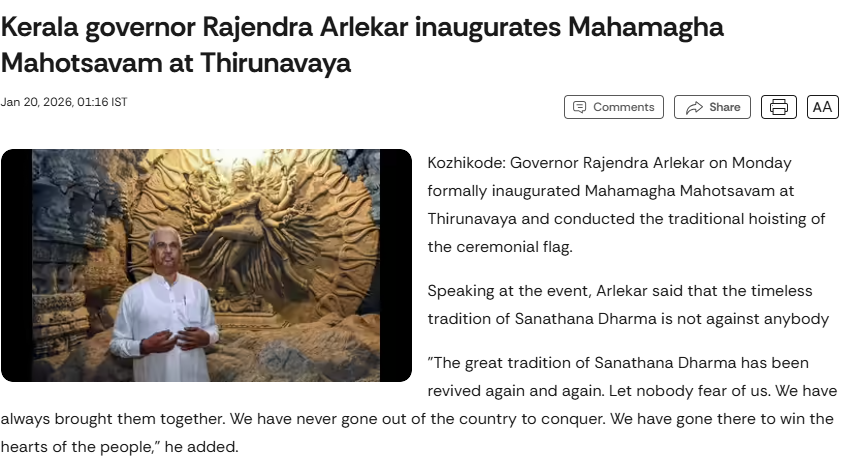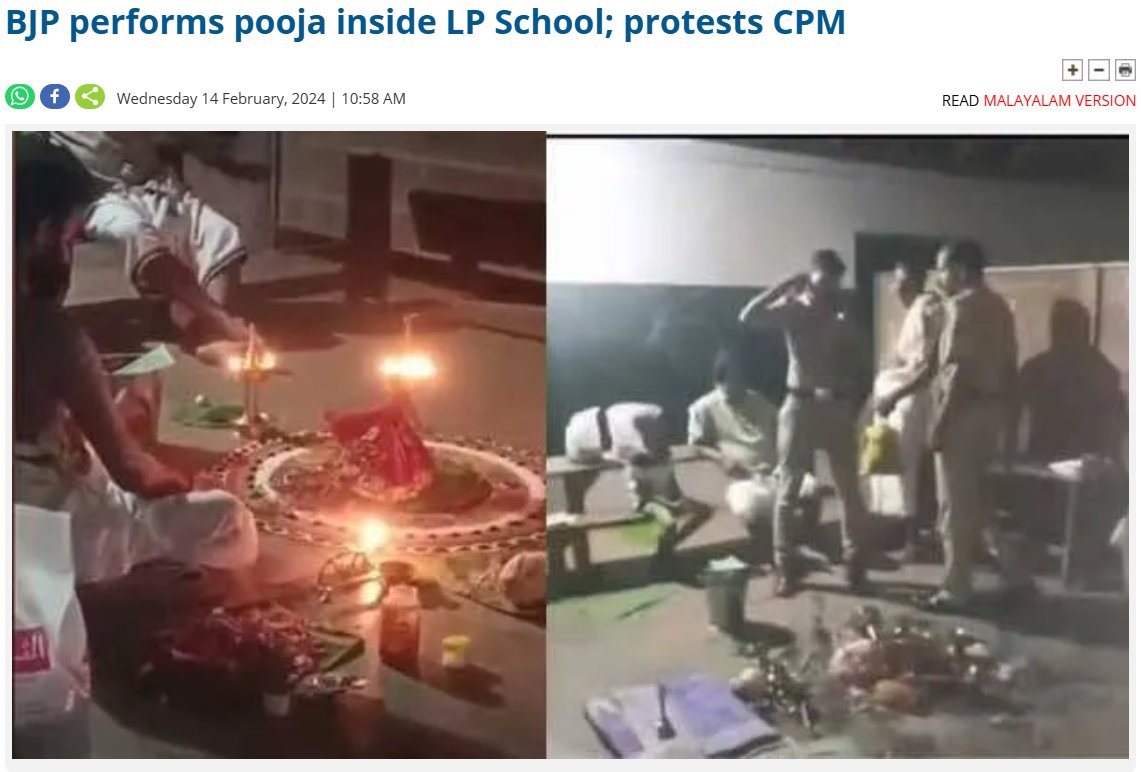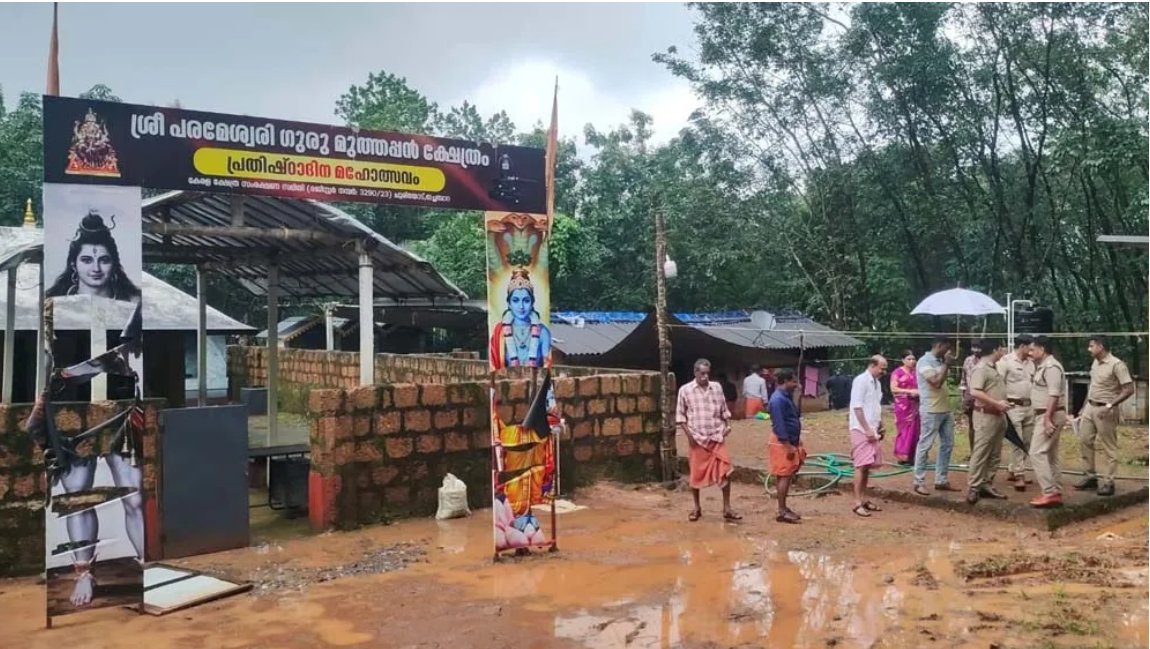Former DGP's Startling Revelations of the Sabarimala Controversy: Kerala Communists in a Spot
How many of you remember the Save Sabarimala agitation? It's only been four years since the agitation took place in 2018.
#Kerala #KeralaStory #Sabarimala
1/16
How many of you remember the Save Sabarimala agitation? It's only been four years since the agitation took place in 2018.
#Kerala #KeralaStory #Sabarimala
1/16

But the horrible memories of those days still linger in the minds of every devotee who fought to ensure that the Sabarimala traditions were not broken by a bunch of atheists.
#Kerala #KeralaStory #sabarimala
2/16
#Kerala #KeralaStory #sabarimala
2/16
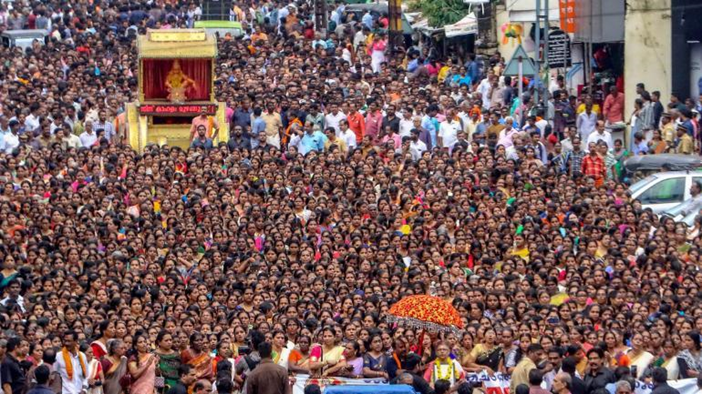
Horrible, because this was a very rare occasion, when a ruling atheistic state government decided to use its entire might to break the traditions of a popular temple. Millions of devotees were disturbed and hurt.
#Kerala #KeralaStory #keralastoryreal
3/16
#Kerala #KeralaStory #keralastoryreal
3/16

Many of us stayed up late into the night, almost as if we were following a cricket match ball by ball, and then woke up early in the morning, hoping and praying that the state government had not been successful in implementing its agenda.
#Kerala #KeralaStory
4/16
#Kerala #KeralaStory
4/16

Now, according to Janam TV and others, former DGP A. Hemachandran has made some startling revelations in his book, 'Neethi Evide' (Where is justice?), released a couple of days ago. Hemachandran was a member of the high-level monitoring committee appointed by the Kerala HC.
5/16
5/16
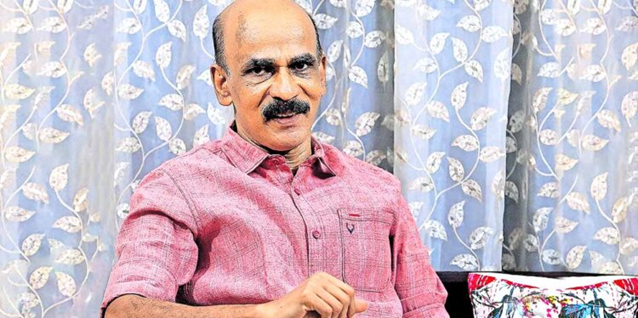
According to the reports, the former DGP accuses the Kerala government of supporting moves to break the age-old traditions at the temple in his book. He mentions that the government portrayed Ayyappa devotees as religious fundamentalists in a report submitted to the HC.
6/16
6/16
He says that the government provided VIP treatment to those women who wanted to go to the temple and break the traditions. (Remember that all these women were left-leaning activists or liberals.)
#Kerala #KeralaStory #Sabarimala
7/16
#Kerala #KeralaStory #Sabarimala
7/16

And you might be astonished to hear that several of them such as Rehna Fatima, Mary Sweety and Libi C.S were born in Abrahamic families as well.
#Kerala #KeralaStory #Sabarimala
8/16
#Kerala #KeralaStory #Sabarimala
8/16

He says in his book that while the devotees were stopped at Nilackal, the police made arrangements for activists to go all the way till Pamba. Just to provide some context, Nilackal is 18 kilometers away from Pamba. Pamba is a holy place where 'Triveni sangamam' occurs.
9/16
9/16
“Triveni Sangamam” refers to the convergence of three rivers, namely Pampa, Kakki, and Njunungar. Pamba is the base station and nearest road point to Sabarimala Temple. The final trek to Sabarimala temple starts at Pamba.
#Kerala
10/16
#Kerala
10/16
There was a team of women activists, Manithi Sangam, from Tamil Nadu who were also accorded special treatment by the government. He says in his book that he was not in favor of providing special treatment to Manithi Sangam and even conveyed this to the government.
11/16
11/16
The government rejected this, stating that not giving protection would be contempt of court. There were devotees ready to prevent this team from moving to the temple. He mentions that the preparations made, were similar to what is normally done to face guerrilla fighters.
12/16
12/16

Apparently, he also mentions in his book that the unnecessary restrictions imposed during the struggle were distressing to devotees, adding that several police officers were also uncomfortable with all of this.
#Kerala #KeralaStory
13/16
#Kerala #KeralaStory
13/16
He says that he had also expressed his dissatisfaction with how the police were handling the situation directly to the Chief Minister. However, his views were rejected by the CM based on a report submitted by the police force.
#Kerala #KeralaStory
14/16
#Kerala #KeralaStory
14/16

Almost everything mentioned above is known to every single Ayyappa devotee in Kerala.
However, the former DGP himself has made these disclosures, and now the Kerala CM and the government clearly have some tough explanations to provide.
#Kerala
15/16
However, the former DGP himself has made these disclosures, and now the Kerala CM and the government clearly have some tough explanations to provide.
#Kerala
15/16

We can soon expect comments from the state government stating that Hemachandran's book is driven by political motives, and that it is the BJP and the Sangha Parivar behind all this.
Thank you, sir for speaking about this in your book.
Swamiye Saranam Ayyappa 🙏
16/16
Thank you, sir for speaking about this in your book.
Swamiye Saranam Ayyappa 🙏
16/16

• • •
Missing some Tweet in this thread? You can try to
force a refresh



